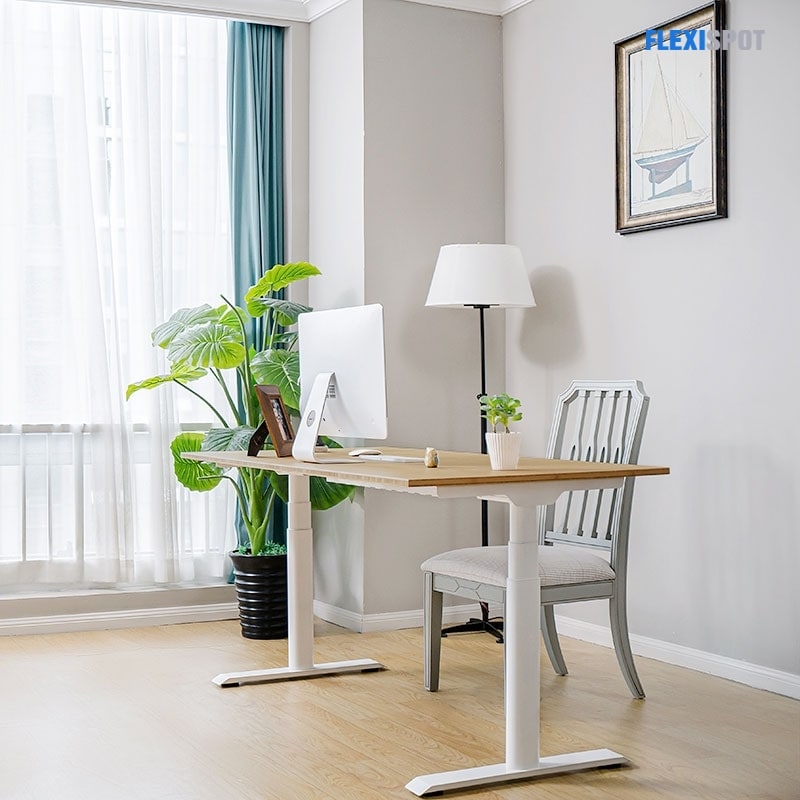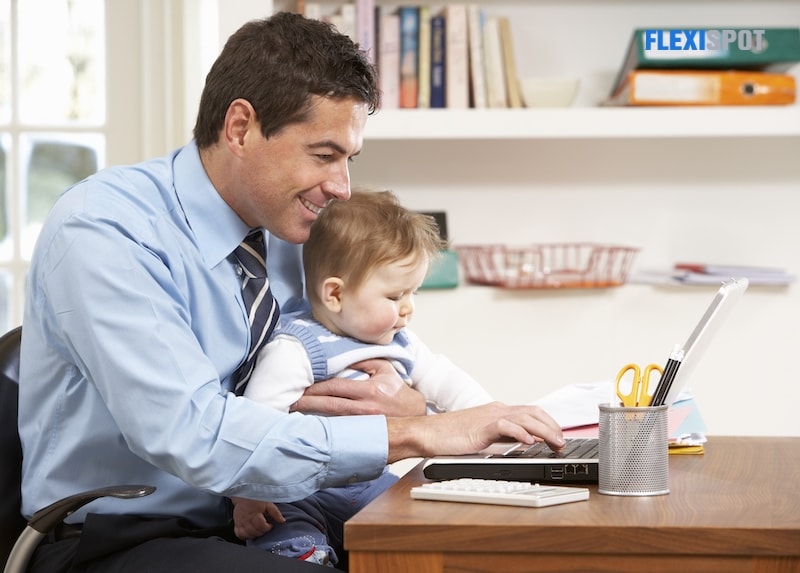Green offices have long been popular as a method to preserve the environment. But did you realize they're also suitable for the company? Are you a business owner who wants to take the responsible step of making your office more environmentally friendly but doesn't know how? If done correctly, it is a decent thing to do. Our offices have a significant impact on the environment. According to statistics, global production of paper in 2016 totaled more than 411 million metric tons. Paper use is accompanied by toner, electricity, and labor costs, all of which add up to a hefty bill for the environment. As a result, everyone needs to go out of their way to change the world.
In recent years, companies have been looking for innovative ways to create an eco-friendly workplace in line with their business activities. They are doing everything they can to include eco-friendly practices in the workplace, manufacturing, and services. Environmentally friendly office improvements have become an integral aspect of corporate accountability. Not only that, but they are now a decisive factor in determining whether or not to be competitive in the future. Additionally, social responsibility can have a favorable impact on employees' mindsets, well-being, and productivity.
What does it mean for a business to be environmentally-friendly?
An eco-friendly office is often known as a "green" workplace. The goal of these venues is to reduce their carbon footprint, particularly in terms of CO2 emissions. They strive to establish a work environment that is conducive to higher quality for people who work there. Energy-saving walls, heat-efficient pavements, plenty of natural sunlight, improved ventilation, and other features are standard in such places. As a result, when compared to regular workplaces, constructing an eco-friendly office necessitates a more significant financial commitment. However, in the long run, this solution provides many more advantages.
But what for?
Going green may appear to be the latest fad. Start becoming green immediately to keep up with your company. Below are some of the reasons why you should embrace the green revolution.
- Creating a brand
- Spending less money
- Tax breaks and legal protection
- Improved working conditions
- Healthier working space
- Keeping top talent
- Planetary sustainability
What are ways in which we can make the workplace green?
The issue is it is not always evident how to be a responsible company or towards the environment. People do not always have the energy or time to ponder their daily behaviors and environmental consequences. Fortunately, by taking a few easy actions, we can already do so much to reduce our carbon output and environmental impact, as well as promote our workplace well-being.
Choose Green Office Supplies
Green materials are non-toxic and have no negative effects on the environment. They can significantly improve the environmental friendliness of your workplace. Choose biodegradable coffee and drinking cups, as well as 100 percent biodegradable binders, recycled paper goods for post-it notes and printing paper, as well as paper towels and tissues.
Recycle Workplace Waste
All of our good recycling practices at home are frequently forgotten when we are at work. Taking action against that kind of tendency is thus a fundamental step toward being a more sustainable company. As an employer, ensure that recycling bins are well distributed and well labeled and that your staff are informed of the disposal rules in your area.
Opt For Sustainable Office Furniture
Devoting to ecological furniture means considering the desk's journey from raw resources to manufacturing to storage to you. For excellent purposes, materials have traditionally been at the top of the sustainability strategy. Consider transportation techniques, labor practices, and your manufacturers, suppliers, and dealers' carbon footprint in conjunction with materials study. Sustainability entails considering the well-being of the people who made the product and the end-users of that same commodity. The longer that desk can be used as a tool in your business, the more sustainable it will be. That is why it is critical to make informed decisions. Avoid items that are poorly manufactured or appear to be disposable. Along with sustainable materials, look for manufacturers and distributors who provide warranties. FlexiSpot is a prime example, where eco-friendly standing desk designs are thoughtfully crafted
for our health — and the planet's. Check out their line of bamboo-topped standing desks!
- L-Shaped Standing Desk E4L
- Kana Pro Bamboo Standing Desk
- Kana Bamboo Standing Desk
- Kana Bamboo Office Standing Desk
- Comhar All-in-One Standing Desk Bamboo Texture Top
- AlcoveRiser Bamboo Standing Desk Converters
Avoid Unnecessary Printing
Encourage your employees to minimize or stop printing paperwork as much as possible. Reduce the number of times you print. Make announcements digitally, send emails, and migrate to the cloud. To avoid wasteful printing, look for wiser options.
Disposables Are A No
Using a plastic or even a plastic cardboard cup may appear to be a minor move, but it could have substantial ecological consequences when combined. Assume you drink two cups of coffee per day: that's nearly 500 cups 500 stirrers thrown away unnecessarily annually. Consider how much waste could be saved if every individual moved from disposable to reusable cups.
Consider Motion-Sensitive Switches
Optimizing energy economy by transitioning to motion-activated light switches will significantly benefit the environment. This is suitable for eating spaces, conference rooms, and other less often used locations. Motion-activated lights will effectively save energy.
Be Mindful of Lunch Practices
Don't take three dinner rolls if you're only going to eat one. If you're not hungry, serve yourself a smaller portion, or ask such from the food server. Reconsider doing group orders if you have your lunch delivered. If you have 20 people in an open environment and they all purchase from different sources, the number of packaging and container multiply but so do the delivery routes. Avoid ordering disposable water bottles when the company has a water filter. If you usually prepare your lunches and store your leftovers for dinner, there are numerous ways to prepare leftovers in delightful ways. Vegetable peels can also be used to make soup or frozen and used to make stock later.
Make The Most of Natural Light
Make use of natural light to create a more environmentally friendly office environment. Natural light is the basis of the body's circadian rhythms, which control waking, vitamin D synthesis, and digestion. Indoor lighting, on the other hand, is a severe disruptor. If feasible, keep windows open to let in natural light, which saves electricity and improves cognitive clarity by illuminating the mind.
Be Flexible With Workplace Dress Code
To save energy, change your outfit and ask your employer to be more accommodating with the dress code. Wearing a suit with a shirt, jacket, and tie during summer isn't enjoyable, and it's also not very practical or eco-friendly because it likely involves switching on the air conditioner. Set a climate-adapted attire if possible.
Use Plants
According to one study, plants significantly reduce workplace stress and increase productivity. Bring in a desk plant to improve conditions around you and add some natural aspects to the workspace. Plants such as Bamboo Palms, Peace Lilies, Spider Plants, and English Ivy are suitable for eco-friendly office environments.
Working From Home Is Still Better
We can't say it enough: working remotely is great. And, given the current coronavirus crisis, it is even more critical to minimize health hazards. When appropriate, it reduces movement, saves a lot of time, and lets you to manage your personal life effectively. It must be balanced with employee socializing requirements, but it undoubtedly provides several work-life benefits.
Involve Your Employees
Employees' behaviors make a significant contribution to working in an environmentally sustainable manner. Incorporate your staff in environmentally conscious habits by educating them about the recycling scheme, encouraging carpooling, strolling, careful paper use, and how to prevent energy drains from office equipment.
Eco-friendliness is no longer a fad; it has become a way of life that our world desires and requires. Regardless of size or aspirations, every organization needs to do everything possible to achieve environmentally sustainable offices. Hundreds of corporations all across the world are raising awareness about environmental stewardship. Dozens of sophisticated eco-friendly workplaces host events now and then to educate everyone on the merits of such choices.


